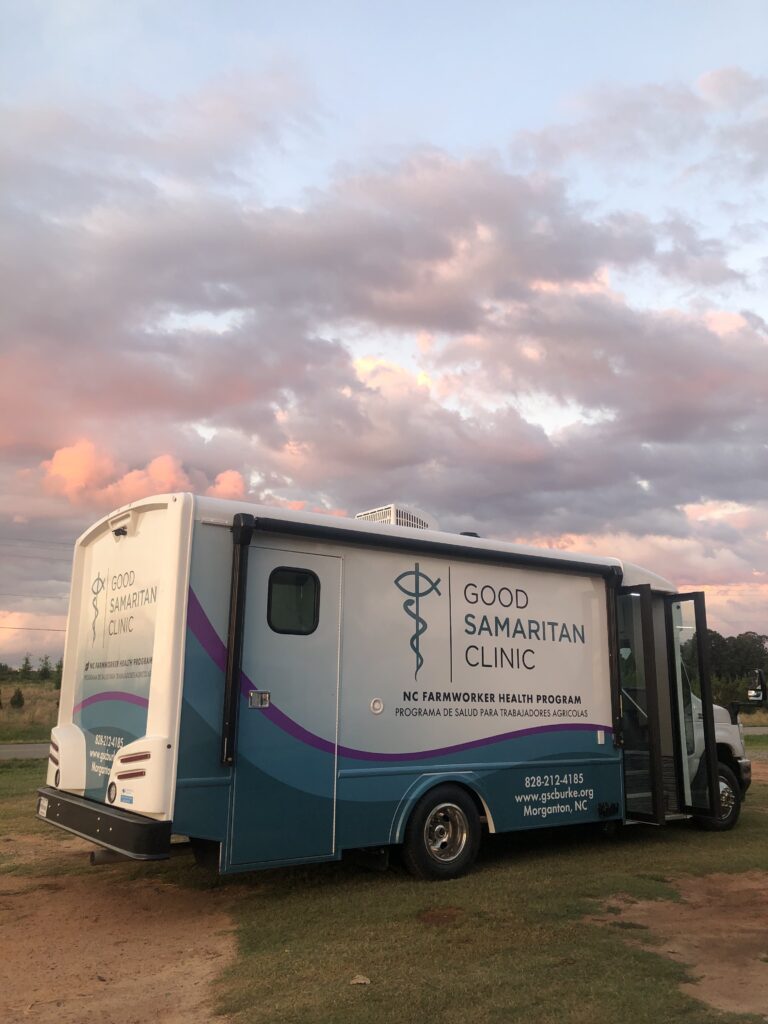– Sophie Therber, 2022 SAF intern
Good Samaritan Clinic

I feel very fortunate to work at a site that prioritizes farmworker outreach. We do outreach 3 nights per week, and I feel that it provides an incredible opportunity for me to see the direct impact of the work we are doing. During outreach, the Good Samaritan Clinic provides services such as health assessments and patient intake, COVID vaccines, and bringing a doctor to the fields to address any health concerns the patients have. Last week, the new mobile unit arrived, which is so exciting! The mobile allows us to take blood to complete labs on the first day of outreach, and many farmworkers I speak with have expressed relief that they can learn more about their cholesterol and blood sugar levels quickly.
Throughout most of our nights doing outreach, we have focused on health assessments and patient intake. When we arrive at farmworker camps, it is usually around 7:00 in the evening. The sun is setting, and the mountains sit in the background behind the fields. Although the farmworkers have endured a long day of hard work, the people I speak to have expressed nothing but gratitude and willingness to participate. I am touched by their patience and generosity.
Although it is very small, there is one aspect of outreach that has especially stuck with me. As part of the health assessment form, we are required to ask questions that screen for depression. One of the questions is: “Durante las últimas 2 semanas, ¿se ha sentido desanimado, deprimido, o sin esperanzas?” This is a really straightforward question, but many of the responses have touched me. I have been met many times with farmworkers saying things along the lines of, “No, ¡Tengo muchas esparanzas!” Although this is a very small moment, I am touched by this willingness to share with me and the amount of hope that prevails throughout the difficulties the workers face.
Prior to beginning work at the clinic, my conceptualization of farmworker justice included healthcare access, policy changes, and higher pay; in other words, I felt that the process of reaching justice for farmworkers was mostly in the hands of people, organizations, and institutions that operate separately from the lives of farmworkers. Now, I recognize that the hope that comes from farmworkers is a huge step towards the realization of farmworker justice. Although the work done by allies and outreach workers is important, it must go hand-in-hand with the hopes, aspirations, and lived experiences of individual farmworkers. Hope, perseverance, and ambition from farmworkers are essential to justice, and I feel that outreach has provided an opportunity for me to witness the power of hope firsthand.
